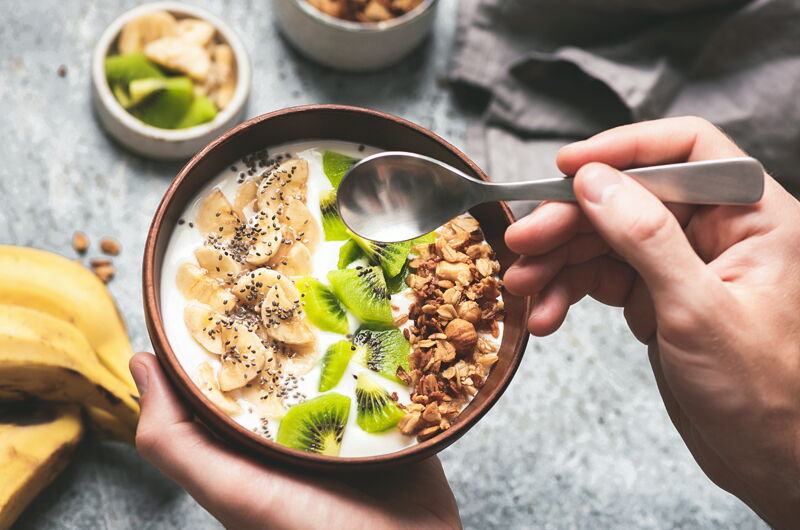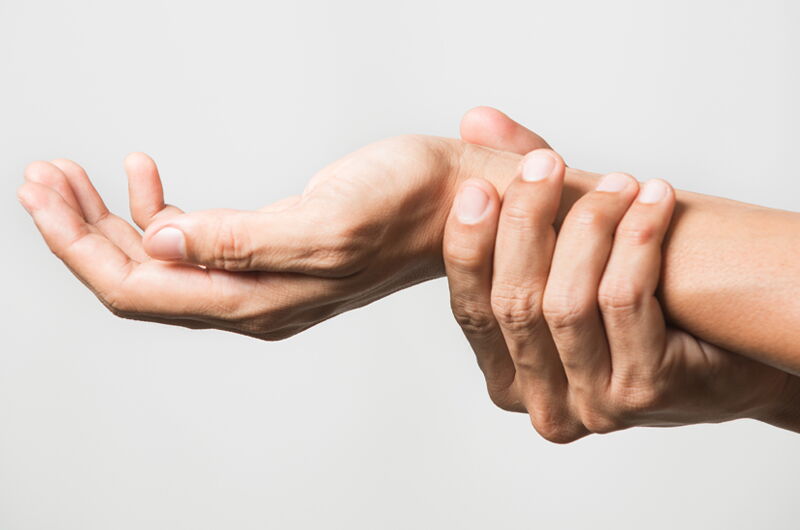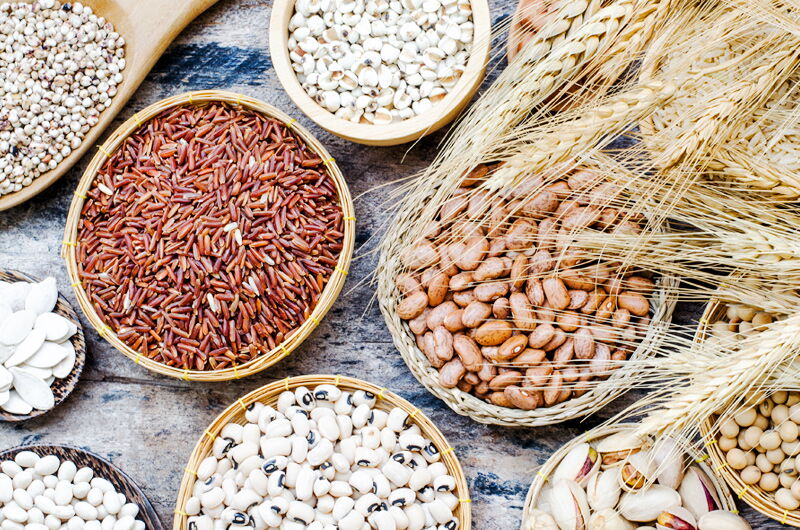Coeliac disease is a chronic inflammation of the small intestine resulting from the ingestion of gluten. Such inflammation occurs in genetically predisposed individuals. Another thing, however, is the sensitivity to gluten, that is, a form of inflammatory subclinical reaction that occurs in non-celiac subjects but that always depends on the ingestion of gluten.
In both cases, a gluten-free diet, for celiacs, is able to bring countless benefits.
In this article, we will analyze the main benefits of this approach and how to implement it.
Disorders of celiac disease
Many people with coeliac disease have unpleasant symptoms such as diarrhoea, indigestion, abdominal pain, fatigue and headaches. Following a gluten-free diet, for at least one year, contributes significantly to reducing these disorders. Acute symptoms such as diarrhoea, due to nutrient malabsorption, tend to resolve in a few days. We can therefore expect some quick improvements and others more over the medium term (a month or more).

Intestinal damage
For people with celiac disease, eating gluten triggers an autoimmune response that damages the small intestine, where nutrients are absorbed. Avoiding gluten prevents this autoimmune process and the small intestine can heal and return to normal function.
This process takes time and the first step is to start a gluten-free diet. In one study, up to 95% of celiac children who have been on a gluten-free diet for two years no longer showed signs of intestinal damage [1]. Recovery tends to be slower in adults, with 34-65% of individuals achieving bowel healing in two years. However, this figure rises to at least 66% - and up to 90% - after five or more years of gluten-free diet [1] [2].
Being vigilant in avoiding gluten is crucial. Exposure to even small amounts may hinder bowel healing in susceptible individuals [3]
Absorption of nutrients
Nutritional deficiencies are prevalent in people with coeliac disease due to poor absorption in the damaged small intestine. Deficiencies in iron, calcium, magnesium, zinc, vitamin B12, niacin, riboflavin and folate, as well as vitamins A, D, E and K, are the most common [4] [5].
Indeed, unexplained sideropenic anaemia is one of the most recognized signs of celiac disease in adults [6] However, supplementation will not always correct deficiencies in celiac people if their intestines are still damaged and they are not able to absorb nutrients [7].

It has been shown that following gluten-free diet repairs the intestine enough to correct iron deficiency anaemia within six to twelve months, even without taking a supplement [8].
Risk of osteoporosis
Up to 75% of people with untreated celiac disease have lower bone density and an increased risk of osteoporosis [9]. This may be due to poor absorption of calcium and vitamin D, as well as increased inflammation that interferes with the bone-building process [10].

Research shows that early diagnosis of coeliac disease and starting a gluten-free diet can help to stop bone loss and reduce the risk of developing osteoporosis [10] [11].
What foods to eat
There are many naturally gluten-free foods to enjoy in the diet for coeliacs, including:
- Gluten-free cereals and pseudo-cereals: amaranth, buckwheat, maize, millet, quinoa, rice, sorghum, teff and wild rice.
- Animal proteins: beef, chicken, dairy products, eggs, game, lamb, pork, seafood and turkey.
- Fats and oils: avocado, coconut oil, olives, oils, solid fats and butter.
- Herbs and spices: all fresh and dried herbs and spices are naturally gluten-free and can be enjoyed freely.
- Walnuts and seeds: any kind, including almonds, cashews, chia, flax, pecans, pepitas, pine nuts and walnuts.
- Fruit and vegetables: in any form, whether or not fresh, frozen, dried or canned.
- Legumes: beans, lentils, peanuts, peas and soya beans.

There is also a wide variety of special products, including gluten-free bread, cereals, flours, crackers, pasta and baked goods.
Conclusions
Coeliac disease can be a very severe problem but it can also be controlled well. Just pay attention to food sources and try, as always, not to deprive yourself of a healthy and balanced diet!
References
[1] https://pubmed.ncbi.nlm.nih.gov/12219789/
[2] https://www.ncbi.nlm.nih.gov/pmc/articles/PMC2881171/
[3] https://pubmed.ncbi.nlm.nih.gov/18315587/
[4] https://pubmed.ncbi.nlm.nih.gov/21447770/
[5] https://www.ncbi.nlm.nih.gov/pmc/articles/PMC3257612/
[6] https://pubmed.ncbi.nlm.nih.gov/12192198/
[7] https://pubmed.ncbi.nlm.nih.gov/11014772/
[8] https://pubmed.ncbi.nlm.nih.gov/11197242/
[9] https://www.ncbi.nlm.nih.gov/pmc/articles/PMC3847761/
[10] https://pubmed.ncbi.nlm.nih.gov/19785691/
[11] https://pubmed.ncbi.nlm.nih.gov/20601293/
